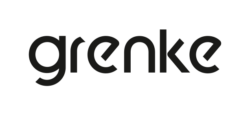Grenke AG migrates document management system: Successful transition to d.velop documents
To optimize its international leasing and factoring operations, Grenke AG has upgraded its outdated document management system (DMS) to a new solution provided by d.velop. The migration process was fraught with challenges, including transferring massive volumes of documents and adapting to the technical and organizational requirements of the new system. However, thanks to close collaboration and managed services from d.velop, Grenke successfully completed this extensive transition.
About Grenke
Grenke AG offers tailored financing solutions in leasing and factoring to businesses worldwide. The company’s services are particularly targeted at small and medium-sized enterprises (SMEs) and include leasing IT equipment, office supplies, and specialized tools for industries such as hospitality and healthcare. Grenke AG operates in 33 countries, with Europe—especially Italy, France, and Germany—being its key markets.
For Grenke AG, document handling is a critical aspect of its operations, as documents flow through the entire leasing workflow—from the initial application and contract phase to archiving and potential reuse. As a publicly listed company, Grenke faces the dual demands of managing high document volumes and ensuring rapid processing times, particularly during annual financial reporting. In this context, a high-performing, integrated DMS is essential.
DMS
Product
2000
Employees
Financial sector
Industry
The starting signal: Migration of the existing DMS to d.velop documents
The starting point for Grenke was far from ideal: the previous DMS, Saperion, had evolved over more than a decade, but without a systematic documentation of its functions and workflows. Patric Flick, Project Manager at Grenke, described the old system as a kind of “document desert,” which made the migration process even more challenging. “The system developed over 10 to 15 years in an evolutionary manner, and the documentation was either incomplete or entirely missing,” Flick explained. The primary task was therefore to thoroughly understand and analyse the functions of the old system in order to effectively transfer them to the new system.
A particular challenge was the sheer volume of documents: a total of 125 million documents needed to be migrated from the old system to the d.velop documents system. The migration process was not only technically demanding but also required meticulous planning to ensure business continuity.
Positive impact on business processes through d.velop documents
The decision to adopt d.velop documents proved to be highly beneficial for Grenke AG. The new system allowed for improved integration of document management into existing leasing and factoring processes, making these processes more efficient and traceable. “D.velop documents has enabled an improvement in document handling across almost all areas of the business,” emphasised Christian Popp, Vice President Digital at Grenke AG.
A particular focus was placed on the application process: documents are archived here and often reused. As a publicly listed company, Grenke also has specific requirements for document handling, especially for quarterly and annual financial statements, where large volumes of documents need to be processed and consolidated. “Our document volumes are enormous, and with d.velop documents, we can manage them better and maintain oversight,” added Christian Popp.
d.velop documents has enabled an improvement in document handling in almost all business areas.
Christian Popp,
Vice President, Grenke AG
Transforming document management: Grenke’s journey with d.velop
In the following video, John Rockliffe, Pre Sales Manager for d.velop, speaks with Thomas Kronawitterer, Head of Data-Driven Applications and Services at Grenke. They discuss Grenke’s rapid growth and the challenges faced with their outdated IT infrastructure before partnering with d.velop.
Thomas highlights the importance of integration, automation, and leveraging data in their document management processes. Despite initial onboarding challenges, the partnership with d.velop proved successful, leading to a shift towards continuous improvement and a cloud-first strategy.
Complex challenges during the project lifecycle
Throughout the project, several challenges arose that demanded creative problem-solving. When Christian Popp joined Grenke AG in 2019, the topic of replacing the old DMS was already on the agenda, albeit primarily from a technical perspective. “Our goal was to broaden the scope and also improve business processes. The migration was not only technically demanding but also required a consolidated process structure,” explains Christian Popp.
Three dimensions proved particularly challenging: Firstly, migrating a “hardcore legacy” application with minimal documentation. Secondly, transferring millions of documents to a new system. Thirdly, integrating and unifying business processes across 33 countries. Specific requirements and workflows for each country had to be considered and incorporated into the new system.
Patric Flick adds: “The old DMS was a locally installed application, whereas d.velop documents operates as a web-based solution. This represented a major adjustment for users.” The fact that the system was used by around 2,000 users in 33 countries, coupled with the lack of internal workflow documentation, required significant effort to consolidate processes and implement the new workflow for invoice processing.
Successful launch and a challenging transition
The rollout of the new system occurred in two phases. The first phase – processing incoming invoices in the non-leasing sector – went smoothly. The d.velop documents workflow functioned flawlessly without notable complications. Nine months later, the transition of leasing and factoring processes followed, proving to be more complex and resource-intensive. During this phase, performance issues arose. From August through the end of the financial year, the project underwent continuous adjustment and optimization cycles.
Support from d.velop managed services
During this critical phase, d.velop managed services emerged as a lifeline. Previously, Grenke had to log every technical issue through a ticketing system, which often caused delays due to changing points of contact. However, the introduction of d.velop managed services fundamentally transformed this process. “We now had a dedicated contact person who handled all technical queries and coordinated internal d.velop resources,” says Patric Flick. “This enabled us to work far more efficiently and respond to challenges faster.”
Christian Popp also highlights the advantages of d.velop managed services: “We’d had mixed experiences with managed services in the past, but d.velop impressed us with their 24/7 support and experienced team.” This support was invaluable during stressful periods like the year-end close.
The year-end closing as a test of the system
As a publicly listed company, Grenke faces extremely high demands when it comes to year-end financial statements. Within a matter of weeks, the individual financial statements of all 33 national subsidiaries need to be consolidated – a process that involves an immense volume of data and requires swift response times. Thanks to the close collaboration with d.velop and their managed services, the year-end closing was completed on time and without technical disruptions. “Completing the year-end closing on schedule was a remarkable achievement – it wouldn’t have been possible without d.velop’s support,” emphasizes Christian Popp.
Collaboration at eye level
The strong partnership between Grenke and d.velop proved to be a key success factor for the project. Patric Flick highlights the solution-oriented collaboration and the reliability of the d.velop team: “In such a critical situation, I have rarely experienced such a collaborative partnership. Our contact person consistently supported us in finding solutions and ensuring the system was ready for use at the right time.” Christian Popp underscores that the immense pressure on both sides was not passed down to the operational level, allowing team members to calmly work on the solutions. “It’s not a given that such a cooperative approach is maintained in a crisis situation,” he adds.

White paper //
Digital document management for your financial company: it’s as easy as that!
- Understanding digital document management in your financial company
- The difference between ECM and DMS
- The 7 most important functions for your financial company at a glance
- Step-by-step guide to introducing a DMS in your financial company
More than just an archive: templates, best practice & tips for digital document management
A document management system (DMS) is the first and most important step on the road to the digital transformation of finance. In our white paper, we show you how to replace your veteran legacy system with a digital document management system and get off to a smooth and uncomplicated start on the road to digitalisation.
A shared future full of potential
The migration of the DMS marked a pivotal step for Grenke towards digitalisation and process optimisation. The successful completion of the project demonstrated the critical importance of trustworthy collaboration – especially during periods of transformation. “Our goals are ambitious,” says Patric Flick. “We aim to double our profits within the next two years. This will inevitably lead to an increase in document volume. We are confident that d.velop will support us in tackling these challenges.”
Looking ahead, plans are in place to further integrate the D3 system into Grenke’s infrastructure and link it with additional applications beyond the existing interfaces. “The collaboration over the past two and a half years has been exceptional, and we look forward to embarking on further projects with d.velop and achieving success together,” Patric concludes.
Software Demo
Get to know d.velop Software
Would you like to experience our SAP solutions live?
Simply fill out the form and request a software demo.

